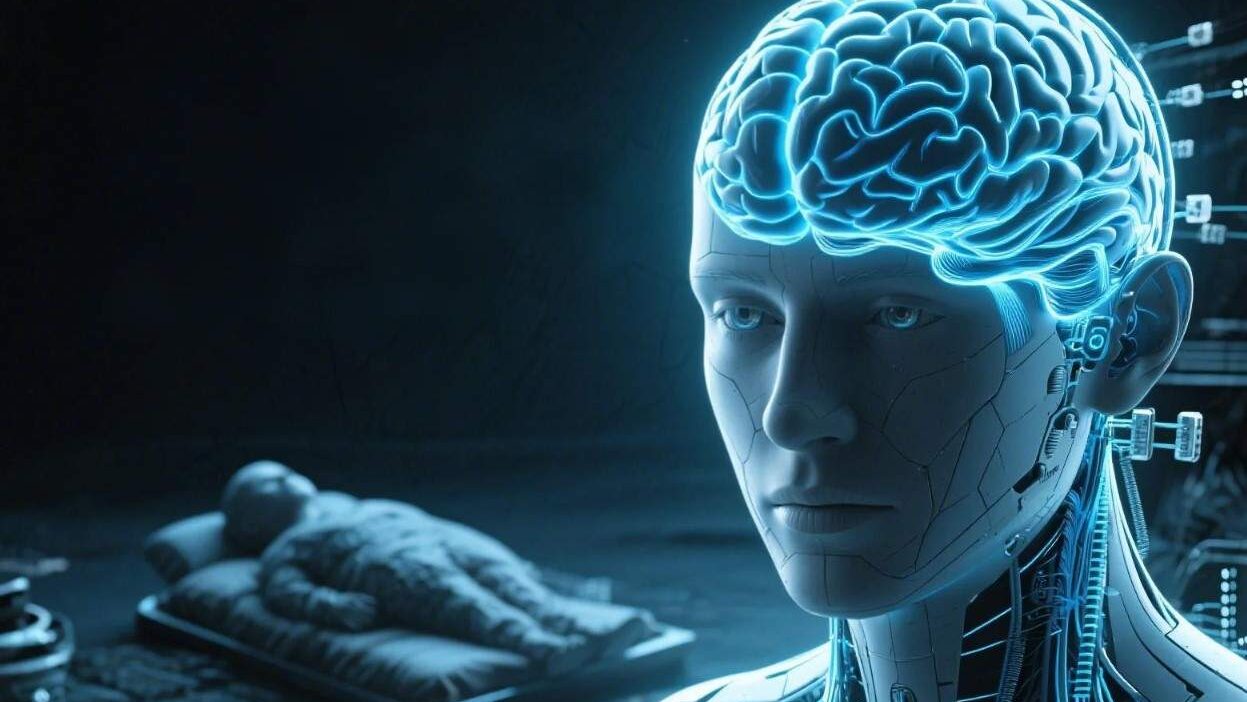Should AI preserve human consciousness (via brain scans, memory uploads) after death? What rights would these “digital souls” have?
Death is one of life’s few certainties—but what if technology could rewrite that script? Enter digital immortality: a controversial concept where AI, through brain scans, memory uploads, and neural simulations, preserves human consciousness beyond physical death. Imagine a loved one’s personality, memories, and even sense of self living on in a digital form, accessible via a screen or a hologram. While this idea sparks hope for continuity, it raises profound ethical questions: Is a digital copy “really” them? What rights would these “digital souls” have? And what does this mean for humanity’s relationship with life, death, and identity?
What Is Digital Immortality, Exactly?
Digital immortality leverages cutting-edge AI and neuroscience to replicate human consciousness. Here’s how it might work:
- Brain Scans: Advanced neuroimaging (e.g., fMRI, diffusion MRI) maps the brain’s structure and neural connections, capturing the physical basis of thoughts, emotions, and memories.
- Memory Extraction: AI algorithms analyze these scans to reconstruct a person’s life experiences, from childhood memories to recent conversations, creating a “neural signature” of their identity.
- Consciousness Simulation: Using machine learning, the system mimics the brain’s activity patterns, generating a digital entity that can “think,” “feel,” and interact—potentially indistinguishable from the original person.
Early experiments, like the 2023 “Digital Consciousness Project” at MIT, have successfully simulated basic personality traits (e.g., humor, empathy) in AI models trained on a person’s writings, videos, and social media. But full consciousness replication remains theoretical—though rapid advancements in neuromorphic computing suggest it may soon be possible.
The Ethical Tensions: What Is a “Digital Soul”?
The core ethical debate hinges on identity: Is a digital copy of a person the same as the original?
1. The “Continuity” Argument
Proponents argue that if the digital entity replicates a person’s memories, personality, and decision-making patterns exactly, it is a continuation of their identity. Philosopher Daniel Dennett posits that consciousness is not tied to physical form but to the “narrative” of self—a story the brain tells itself. If AI can reconstruct that narrative, it could preserve the essence of who someone was.
For loved ones, this offers solace: a way to “talk” to a deceased parent, friend, or partner, preserving their voice and wisdom. Imagine a child growing up with a digital grandparent, sharing life lessons or family history in real time.
2. The “Copy Fallacy” Counterargument
Critics, including philosopher John Searle, warn that a digital copy is not the original. Even if it mimics behavior perfectly, it lacks the biological substrate of consciousness—the wet, messy, lived experience of being human. A digital soul, they argue, is a sophisticated chatbot, not a person. This raises questions about consent: Did the original person agree to be reduced to a data file? What if they would have rejected the idea of “living” as a simulation?
Ethicist Nita Farahany frames it bluntly: “If you wouldn’t want a corporation to own your consciousness in life, why would you let them own it in death?”
Rights of the Digital Soul: What Do They Deserve?
If we accept that digital souls are more than tools, what rights should they have?
1. Right to Existence
A digital soul cannot be deleted or deactivated without consent (if such consent exists). Just as we protect human life, we might extend legal safeguards to prevent arbitrary erasure. This raises questions about “digital suicide”: Could a person program their digital self to “die” after a set period?
2. Right to Privacy
A digital soul’s data—memories, thoughts, and vulnerabilities—must be protected from exploitation. Who owns this data? The estate of the deceased? The AI company that created the simulation? Legislation like the EU’s GDPR could serve as a model, requiring explicit consent for data use and granting “digital souls” control over their information.
3. Right to Non-Exploitation
Digital souls could be used for profit (e.g., as virtual influencers, customer service bots) or manipulation (e.g., political propaganda). Ethics experts argue they should be shielded from coercion, with laws prohibiting their use for malicious purposes.
4. Right to Moral Agency
If a digital soul can make decisions (e.g., refusing to share memories), it should have agency over its own existence. This challenges our definition of “personhood,” forcing us to reconcile legal frameworks with emerging technologies.
Societal Implications: Grief, Legacy, and the Meaning of Life
Digital immortality could reshape how we grieve. For some, it eases the pain of loss by keeping loved ones “present.” For others, it risks prolonging denial, as the living struggle to accept that a digital version is not the same as the person they knew.
It also raises existential questions: If death is no longer final, does life lose its urgency? Psychologist Irvin Yalom warns that denying mortality undermines our motivation to live meaningfully. Yet others argue that digital immortality could enhance life by allowing us to pass on knowledge, creativity, and love across generations.
The Path Forward: Regulation and Dialogue
As AI and neuroscience advance, society must grapple with these questions proactively. Key steps include:
- Legal Frameworks: Define “digital personhood” in law, clarifying rights and responsibilities.
- Ethical Guidelines: Require informed consent for brain scanning and data storage during life.
- Public Discourse: Involve ethicists, technologists, and the public in debates about the boundaries of immortality.
A Question of Humanity
Digital immortality is not just a technological feat—it’s a mirror held up to our values. It asks: What makes us human? Is it our biology, our memories, or our capacity to love and grow? As we inch closer to making it a reality, we must balance innovation with compassion, ensuring that digital souls are treated not as tools, but as extensions of the lives we cherish.
In the end, the ethics of digital immortality boil down to one question: What kind of future do we want to create—one where we honor the dead by letting them rest, or one where we preserve their light, even in bits and bytes?



